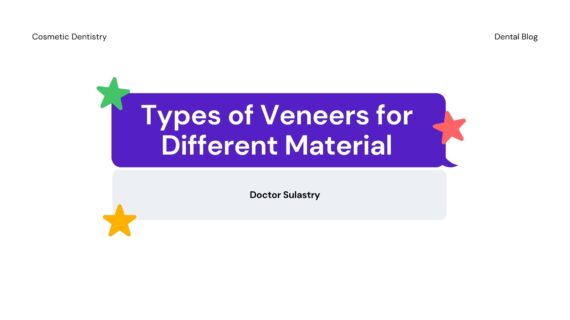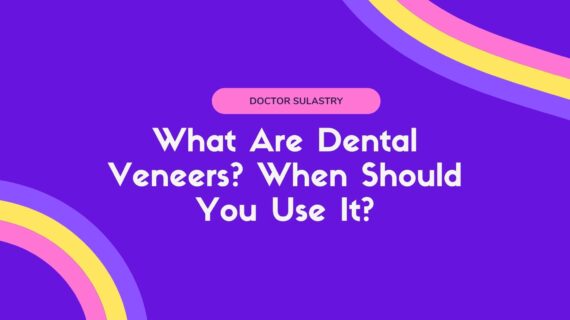Everything You Need to Know About Dental Veneers – Lately, veneer has become one of the beauty trends that are being crowded with women. In addition to improving the structure of teeth, veneer procedures can also beautify your appearance when smiling. Interested in trying veneer? There are many things you need to consider before going to the dentist.
Also Read Vitamin D For Dental Health and Oral Health
What is dental veneers?
A tooth veneer is a thin shell used to coat the front of your teeth. This artificial shell will be shaped to resemble the shape of its original teeth. The materials used to make the shells are various, including porcelain, composites, and ceramics. However, porcelain veneers are more in demand. Porcelain veneers are popular because they tend to be more durable and do not give rise to overly striking whites.
The cost of this treatment will be adjusted to the type of material used and the number of teeth that will be installed veneer.
How long can dental veneers last?
Veneers are thin skeletons with teeth-like colors made of porcelain or resin composite material. The installation of veneers aims to beautify the teeth by covering the deficiencies in their shape, color, length, or size.
Both types of veneers have their own advantages and disadvantages. Composite veneers are usually cheaper and easier to make.
Real teeth will also not be affected because the dentist only needs to form a veneer based on the shape of your teeth.
However, composite veneers are not as strong as porcelain veneers. Compared to porcelain veneers, teeth veneers from composite materials are more fragile and do not last long. Porcelain veneers also appear more natural and are able to ward off stains well.
Composite veneers can generally last for 3-5 years, or 5-7 years if properly maintained. This means you should be able to guarantee dental and oral hygiene and regularly visit the dentist at least once a year.
If you want to install a more durable veneer, porcelain veneers can be a good choice. Porcelain veneers can last for 10-15 years. In fact, some people have porcelain veneers that last up to 25 years.
Even so, there is no guarantee the tooth veneer will survive without breaking at all. Veneer resistance depends on how you treat it and how routinely you check the condition of the veneer to the dentist.
Benefits of dental veneers
Quoting on the pages of the American College of Prostodhontists, veneers can be used to correct:
• Chipped or broken teeth
• Cracked teeth
• Large teeth next door
• Teeth that are uneven, uneven, or irregularly shaped
• Teeth that have gaps (veneers can close gaps between each other’s teeth)
Click here if you want to know more about benefits of using veneers. This dental treatment can also be used to whiten the color of teeth.
Veneers are not the same as dental or crown implant procedures. The veneer covers the front surface of the tooth, while the implant replaces the loose tooth. Veneers also usually cover only the surface of the front teeth. On the other hand, the crown wraps all parts of the tooth above the edge of the gums.
Cost of Veneers
The price of dental veneers varies based on the number of teeth to be closed and the expertise of the person performing the procedure.
According to Alodokter, One can expect to pay between IDR 650,000 to more than IDR 5,000,000 per tooth.
These costs are estimates and may vary based on:
- veneer type
- the amount of preparation required before the procedure
- geographic location of a person
Since most insurance companies consider veneers a cosmetic procedure, most insurance plans will not cover the cost.
Before you get veneers
- Your teeth and gums must be healthy before you get veneers. Your dentist can treat any disease or decay before your veneers are placed.
- Veneers are not always a good choice for patients who are grinding or grinding their teeth, as thin veneers can chip or crack. If you grind or grind your teeth, your dentist may recommend that you wear a plastic dental night guard while sleeping.
- Even if your dentist removes as little tooth enamel as possible for veneers, the process cannot be undone once the enamel is removed.
- Veneers can come off from time to time. In this case, a new one may be required.
As with all of your dental care, discuss all of your expectations and treatment options with your dentist. Regular dental visits are a must to keep your teeth and gums healthy.
After you get the veneer
- Veneers can crack or crack under pressure. Avoid biting your nails and chewing on hard objects, such as pencils or ice.
- It may take you a few days to get used to the feel of your veneer. However, tell your dentist if your bite feels bad after the veneers are placed. He will fix it before you leave the office.
- Keep your teeth and gums clean by brushing and flossing every day. You can still get cavities under or around the veneers. Look for dental products that feature the American Dental Association’s Seal of Acceptance.
After Care
After the veneers are placed, the dentist may want to examine them at a follow-up appointment. During this time, they will ensure that the veneer stays in place and is comfortable for the wearer.
This is a good opportunity for someone to mention if any veneers are uncomfortable, as a dentist can help fix them.
A person with new dental veneers does not need to avoid certain foods or drinks after their removal.
That said, since veneers can stain over time, a person may want to avoid coffee, tea, and red wine, as well as other things that can cause stained teeth, to make them last longer.
The dentist may also recommend that:
- biting hard
- biting nails
- use mouth guard
- gritting teeth
- chewing very hard food
- opening items with gear
One may notice rough patches on the veneer. This should improve over time. If not, one can ask the dentist to smooth it out. Rough fillings tend to occur because dentists leave extra bonding material on the veneers.
In addition, a person can still develop cavities even if they have veneers, so it is important to practice good oral hygiene, including brushing twice a day and flossing every day.
With proper care, one can expect their veneers to last around 10 years. After this time, someone may need to replace it.
How long veneers last can vary based on the material the dentist uses and how well the person cares for them. A person can talk to their dentist about the time frame for a veneer replacement.






